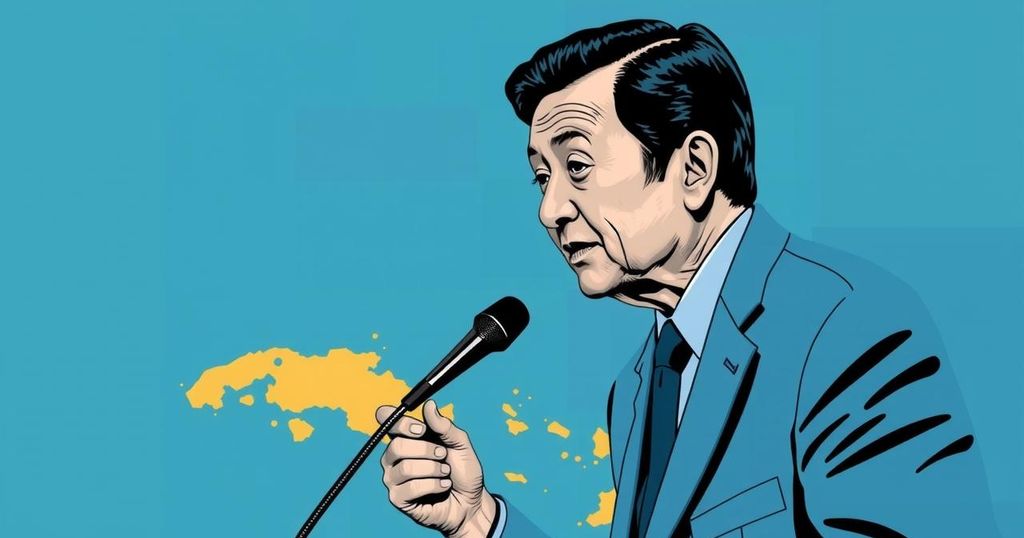Argentina’s President Dismisses Foreign Minister Following UN Vote on Cuba
Argentina’s President Javier Milei fired Foreign Minister Diana Mondino after the country voted in favor of lifting the U.S. embargo on Cuba at the UN. The new minister, Gerardo Werthein, was previously the Argentine ambassador to the U.S. While 186 countries supported the resolution, only the U.S. and Israel opposed it. Milei’s administration has traditionally voted against the embargo, and this decision may impact future relations concerning the Falkland Islands.
On Wednesday, Argentina’s President Javier Milei dismissed Foreign Minister Diana Mondino following the nation’s vote in favor of lifting the long-standing U.S. embargo on Cuba during a United Nations session. The presidency disclosed that Mr. Gerardo Werthein, who previously served as Argentina’s ambassador to the United States, has been appointed as the new foreign minister. Argentina joined 186 other UN member states in advocating for the removal of the embargo, while only the United States and Israel opposed the resolution, and Moldova abstained from voting. In a show of support for the decision, President Milei shared a remark from a lawmaker expressing pride in the government for not aligning with oppressive regimes, stating, “Viva CubaLibre.” Historically, Argentina has maintained a position against the embargo; however, diplomatic sources indicated that this recent vote may complicate relations with traditional allies such as the U.S. and Israel, particularly regarding Argentina’s ongoing claims over the Falkland Islands, a British territory.
The modern political landscape concerning the United States’ embargo against Cuba has been shaped by various international votes and global sentiment regarding diplomatic relations. The embargo was first instated in 1962 and has faced significant opposition over the decades, particularly from Latin American nations that advocate for diplomatic and economic engagement with Cuba. Argentina, under different administrations, has fluctuated in its stance towards the embargo, and traditionally, the country has aligned itself with UN resolutions that call for its lifting. President Javier Milei’s recent decision to fire Foreign Minister Mondino signals a strategic shift potentially influenced by domestic political considerations and international relations involving Cuba and the United States.
In summary, President Javier Milei’s decision to dismiss Foreign Minister Diana Mondino underscores the complex interplay of international relations, particularly regarding Argentina’s stance on the U.S. embargo of Cuba. The appointment of Mr. Gerardo Werthein reflects a recalibration of Argentina’s foreign policy amid ongoing historical relations with both Cuba and its traditional allies in the West. The situation highlights the broader implications of voting decisions at international bodies such as the UN, especially concerning Argentina’s sovereignty claims over the Falkland Islands.
Original Source: www.barrons.com




Post Comment